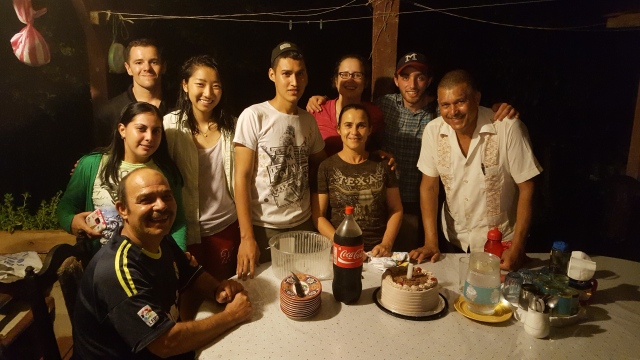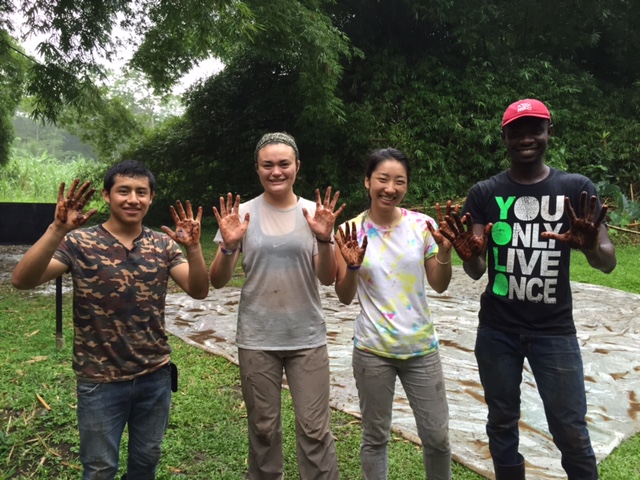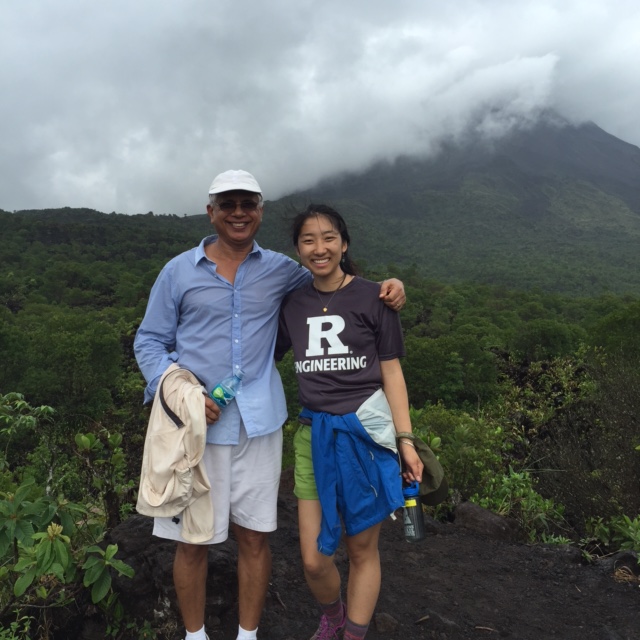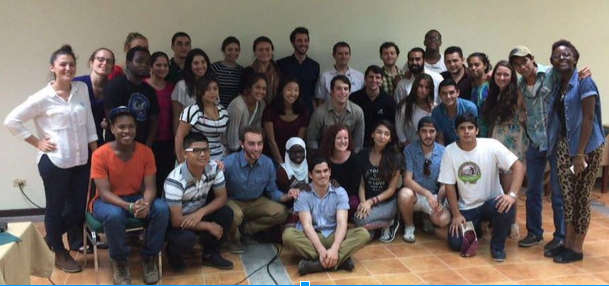Learning to Live in Costa Rica
For two weeks in May 2016, 13 students including myself took part in the first ever Engineers Without Borders (EWB) study abroad experience at EARTH University in Costa Rica. The course description painted a broad, but enticing picture to “Act Global, Think Local” in the context of understanding sustainable community development and the food, energy, and water nexus in Costa Rica.
The experience morphed into an interactive and action-packed opportunity to forge connections between our precious earth and some stellar people. I am unbelievably grateful that I was able to learn, question, and experience a place where people work towards lasting harmony with our environment.
In remembrance of a very special two weeks in Costa Rica, here are 4 big ideas that I either learned or reaffirmed during my time in paradise:
Table of Contents
1) Even if you do not speak the local language, you can still communicate effectively.
Even though I couldn’t speak conversational Spanish, a warm smile and genuine laugh spoke volumes. Always. The people of Costa Rica are some of the happiest people I have ever met and were always ready to make friendly conversation. (Nevertheless, it is always a good idea to study the local language and culture beforehand!)

2) The world is interconnected… and fragile.
“Nothing is completely itself without everything else.”
We learned that many of the Northern Central American countries are very concerned about climate change because of the dry corridors. In particular, El Salvador, Honduras, and Guatemala all share water resources, and therefore depend on each other for water. Now, if circumstances changed and certain natural resources became scarce as a result of, let’s say, climate change, friendly trade could quickly dissipate.
Costa Rica is fortunate that it only trades with Nicaragua, because water will most certainly become a “hot commodity” in the future. We wondered, if Costa Rica reduced the amount of water they exported, how could this affect their neighbors and allies who rely on Costa Rica for water? How might its neighbors leverage the fact that Costa Rica currently does not have a standing army? If water is scarce and farmers are forced to migrate to better areas, how might this affect tensions at the border of neighboring countries?
These questions made me realize the complexity of sustainable solutions. It made me realize that energy, politics, people, environment, and everything else are heavily intertwined.

3) Health is #1.
Everything must be healthy if you want to be healthy too. “Everything” is quite all encompassing. I took it to include our community, mental health, physical well-being, financial security, as well as animals, natural resources, the environment, and our world as a whole. If we can take responsibility for our actions and take care of our world, we can create a win-win-win situation.
A win for you, a win for me, a win for everyone.

4) Perspective can be a choice.
I would describe “perspective” as the lenses I choose to place over my eyes in order to interpret the world. Everyday, I am discovering new lenses and new ways to view the world. At the end of the day, it is ultimately my choice which pair of lenses I choose to wear.
One of the coolest parts of this study abroad experience was staying at EARTH University. I met students from over 40 countries who all share a fervent passion for agronomy, entrepreneurship, and fulfilling their potential so that they can create a sustainable legacy.
Bernard Amadei, one of the course instructors and the founder of EWB-USA encouraged us to spend time connecting with students in the cafeteria, a sort of “Model UN” for students,” because it was a central location where students from diverse backgrounds mix and mingled everyday.

Listening to the student’s stories reflected their grit, resilience, compassion, open-minded attitude, optimism for the world. I left EARTH with new perspectives and different lenses to view our world.
There was a high sense of awareness of their personal duties and responsibilities to themselves, their families, Earth University, the professors, their environment, and in most cases, their home country. At EARTH, and in life too, learning does not stop once you leave the classroom. It is only the beginning.